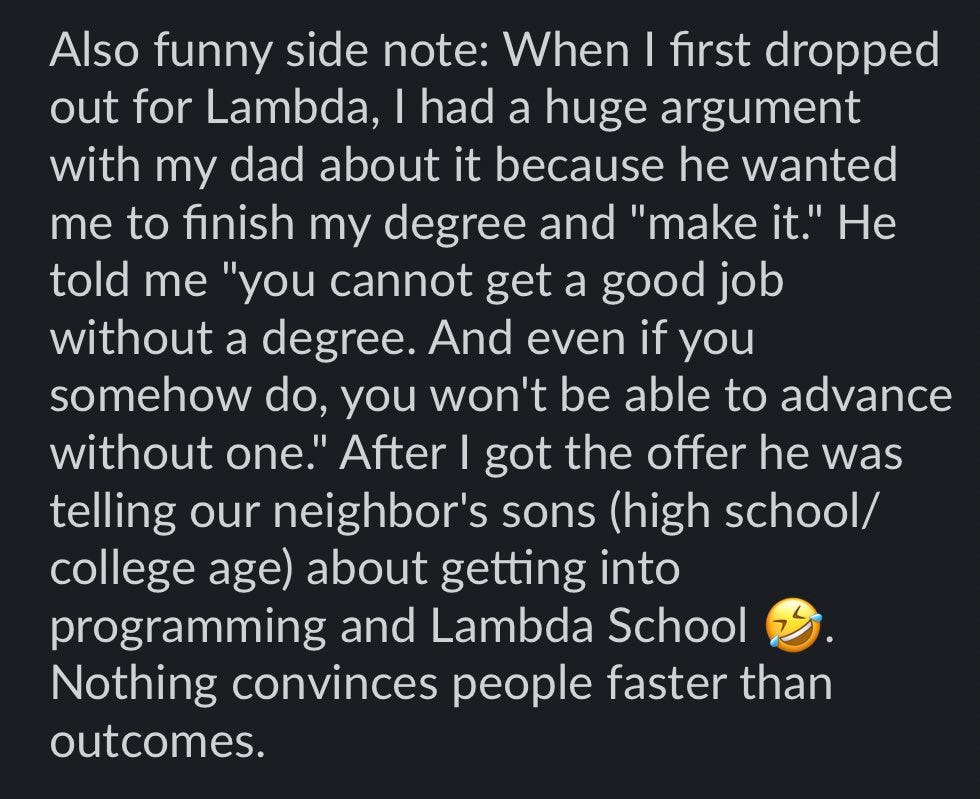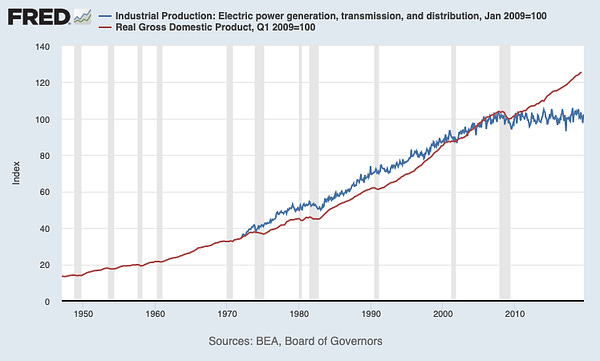#70: Alternative Schools, Life Advice & Organization Kid
😎 Reflections on life, work & what matters
October 11th, 2019: Greetings from Taipei! Some dried fruit from a short trip to Miali last week:

👋 Welcome aboard Frank, Antoine, JT, RA, John, Abhilash, Christine, Sara, Giulia, Irene, Donna
👊 Thank you for the generous gift Giulia if you want to join her find ways to support here
🙏 Forward this to a friend who might get a kick out of it via e-mail, share on twitter or #1 Career & Life Advice
I compiled some of my favorite essays, guides & tips on navigating work & life, including an epic letter from Hunter S. Thompson to a friend. From Thompson:
And indeed, that IS the question: whether to float with the tide, or to swim for a goal. It is a choice we must all make consciously or unconsciously at one time in our lives. So few people understand this!
You can read the compilation here.
#2 Lambda & Alternative Schooling
There is an education revolution happening that many people are missing. One of the most interesting examples is Lambda School, which is taking people from blue-collar backgrounds and helping them develop real skills to be developers at top companies around the world.
Here is a testimonial from the Founder’s amazing twitter feed, where he shares all his students experiences:

I’m not as bearish as other people are on the future of higher education, but when people are nearing college age in 10 years, I imagine there will be a wider range of options that people choose from.
Already today you are seeing countless options pop up for people of all ages, such as Outschool, which leads small intensive video classes for kids aged 3-18 (which pairs well with the next piece on remote working).

I think too many people are focusing on the negatives of the school system they grew up with while many systems have shifted at the same time many alternatives are emerging.
#3 Where We Live & How States Compete (h/t Mike Reid)
Many peoples have to live in cities because they’ve tracked their career around the types of good jobs that are in cities. If they move cities they move from one city to another (e.g. from Boston to San Francisco). Many are located in rural employees and dependent on one or two good employers in that area.
What will it look like when people have more freedom to move around? From an interesting Vox Report on remote work this week:
As King put it, “The societal impact of remote work is, we’re finally starting to see what was promised in the first internet boom: more flexibility in where we live.”
Will people move to cheaper areas? Will people live more seasonally? Will they still invest in a 30-year mortgage?
I don’t have good answers, but a hidden side of this shift is that many states will likely start competing” for individual workers:
Vermont is offering $10,000 grants to encourage people from out of state to spend their time — and money — in the state. Utah is offering businesses grants to create remote jobs in less economically prosperous parts of the states. Massachusetts is proposing to reduce traffic by giving people $2,000 tax credits to work from home.
If I decide to move back to the US perhaps I should run a competition similar to Amazon and see who wants to give me a tax credit :-)
(I’m diving in deep on this idea for my next essay if anyone has any feedback or thoughts)
#4 Energy Use & Digital Economy
Interesting chart and I’m not sure of the implications. Energy use and production seems to have decoupled in 2010.



#5 “Organization Kid” (essay from 2001)
I stumbled upon this article from 2001 from David Brooks. It highlights the “excellent sheep” phenomenon later documented by William Deresiewicz. The article is from a pre-9/11 and pre-social media era, which seems like another world entirely.
The first thing being how few of the students seem to care about politics:
I was on campus at the height of the election season, and I saw not even one Bush or Gore poster. I asked around about this and was told that most students have no time to read newspapers, follow national politics, or get involved in crusades. One senior told me she had subscribed to The New York Times once, but the papers had just piled up unread in her dorm room. "It's a basic question of hours in the day," a student journalist told me. "People are too busy to get involved in larger issues. When I think of all that I have to keep up with, I'm relieved there are no bigger compelling causes."
How the students lacked technology at school.
"Sometimes we feel like we're just tools for processing information. That's what we call ourselves—power tools. And we call these our tool bags." He held up his satchel. The other students laughed, and one exclaimed, "You're giving away all our secrets."
…and didn’t challenge Professors
Aaron Friedberg, who teaches international relations, said, "It's very rare to get a student to challenge anything or to take a position that's counter to what the professor says."
Reflecting back on being in college as facebook just entered the scene, many people still had desktops, Wikipedia was still seen as sketchy, texting cost 10 cents a text and taking out books in the library was necessary for research there is no way to avoid the fact that I’m getting older, the world has changed and I’m not sure what it all means.
That’s all for this week. Have a good weekend!

Want to Support Boundless? All of the options here
🙋♂️ If you want to learn more about who I am or what I’m working on, find me here. Have a good weekend 😃If you aren’t subscribed to the e-mail, join us here:




